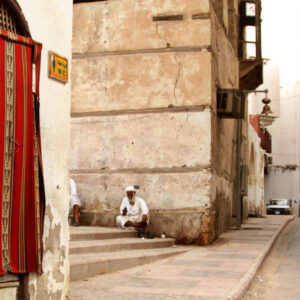History Resources for Educators
- Classroom Resources
- General Middle Eastern History
- Israeli-Palestinian Conflict
- Islamic History
- Specific Periods, People and Places
Best of History Websites
With links to over 1000 sites that have lesson plans, activities, games, quizzes and solid information, Best of History is a rich resource of tools and information. This is a project of the Center for Teaching History with Technology.
Bridging World History
This is a free Annenberg Media set of videos, activities, lesson plans and more related to North Africa and Southwest Asia, specifically exploring Egypt and Israel. The content is appealing to students and features a World History Traveler section with activities. Explore the website; the Social Sciences discipline section has useful resources.
Teaching American History
Though it specifically addresses American history, this online resource for students and teachers can provide background and context on key events and ideas that influenced the United States’ foreign policies over time.


